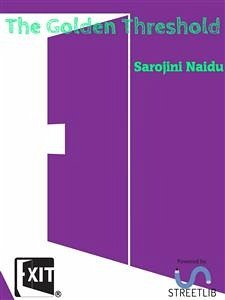INTRODUCTION
It is at my persuasion that these poems are now published. The earliest of them were read to me in London in 1896, when the writer was seventeen; the later ones were sent to me from India in 1904, when she was twenty-five; and they belong, I think, almost wholly to those two periods. As they seemed to me to have an individual beauty of their own, I thought they ought to be published. The writer hesitated. "Your letter made me very proud and very sad," she wrote. "Is it possible that I have written verses that are 'filled with beauty,' and is it possible that you really think them worthy of being given to the world? You know how high my ideal of Art is; and to me my poor casual little poems seem to be less than beautiful—I mean with that final enduring beauty that I desire." And, in another letter, she writes: "I am not a poet really. I have the vision and the desire, but not the voice. If I could write just one poem full of beauty and the spirit of greatness, I should be exultantly silent for ever; but I sing just as the birds do, and my songs are as ephemeral." It is for this bird-like quality of song, it seems to me, that they are to be valued. They hint, in a sort of delicately evasive way, at a rare temperament, the temperament of a woman of the East, finding expression through a Western language and under partly Western influences. They do not express the whole of that temperament; but they express, I think, its essence; and there is an Eastern magic in them.
It is at my persuasion that these poems are now published. The earliest of them were read to me in London in 1896, when the writer was seventeen; the later ones were sent to me from India in 1904, when she was twenty-five; and they belong, I think, almost wholly to those two periods. As they seemed to me to have an individual beauty of their own, I thought they ought to be published. The writer hesitated. "Your letter made me very proud and very sad," she wrote. "Is it possible that I have written verses that are 'filled with beauty,' and is it possible that you really think them worthy of being given to the world? You know how high my ideal of Art is; and to me my poor casual little poems seem to be less than beautiful—I mean with that final enduring beauty that I desire." And, in another letter, she writes: "I am not a poet really. I have the vision and the desire, but not the voice. If I could write just one poem full of beauty and the spirit of greatness, I should be exultantly silent for ever; but I sing just as the birds do, and my songs are as ephemeral." It is for this bird-like quality of song, it seems to me, that they are to be valued. They hint, in a sort of delicately evasive way, at a rare temperament, the temperament of a woman of the East, finding expression through a Western language and under partly Western influences. They do not express the whole of that temperament; but they express, I think, its essence; and there is an Eastern magic in them.









